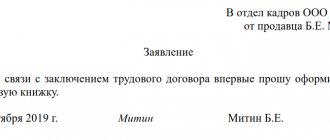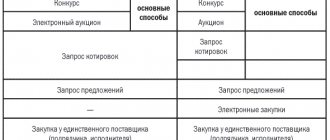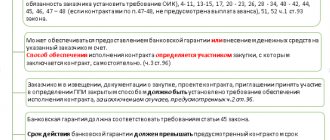Home / Complaints, courts, consumer rights / Consumer rights
Back
Published: September 10, 2018
Reading time: 7 min
0
769
Technically complex goods are a statutory legal term designating a specific group of goods. These mainly include complex equipment, electronic and electronic computer technology and transport.
- Regulatory framework
- List of technically complex products
- Consumer rights
- Technically complex products that cannot be returned
An exhaustive list is given and recorded in the Decree of the Government of the Russian Federation.
Definition of a technically complex product
A technically complex product is a product that is approved by Decree of the Government of the Russian Federation of November 10, 2011 No. 924 as technically complex and included in a special list.
The list of technically complex goods includes:
- Aircraft that are based on an internal combustion engine or an electric motor.
- Vehicles based on an internal combustion engine or an electric motor.
- Machines and equipment that are intended for use in agriculture, created on the basis of an internal combustion engine or an electric motor.
- Vehicles designed to travel on snow, based on an internal combustion engine or an electric motor.
- Floating vehicles that are based on an internal combustion engine or an electric motor.
- Navigation and wireless communication equipment for household needs, including satellite communication equipment, the design of which includes a touch screen capable of performing two or more functions.
- System units (processors), desktop computers and portable devices, including laptops, tablets and other personal computers.
- Laser or inkjet multifunction devices.
- Monitors that include a digital control unit.
- Satellite television sets.
- Game consoles with a digital control unit.
- TVs and projectors with a digital control unit.
- Digital photo and video cameras, lenses for them.
- Optical photographic and film equipment with a digital control unit.
- Household appliances: refrigerators, freezers, washing machines and dishwashers, coffee machines, air conditioners, electric and combined stoves, electric and combined ovens, electric water heaters with an electric motor or microprocessor automation.
Store requirements when returning a purchase
Having purchased a complex product, the consumer at home discovered a manufacturing defect or malfunction. Before returning the purchase to the store, it is recommended to approach the store manager and consult whether this malfunction will be a reason for return. Some manufacturers of complex products warn sellers about specific cases when warranty service will not be provided.
This is also important to know:
Consumer rights to return goods: rules for returning goods to the store, return period
Required conditions for returns:
- documents confirming the fact of purchase of the product from this particular trade organization;
- technically complex products are returned only in the original packaging and with all tags;
- the product malfunction was not caused by the consumer;
- availability of a complete package of documents for the product;
- the presence of a protective film on the product screen;
- if the buyer independently downloaded additional software for the product, they will definitely refuse to return it;
- If the buyer is not informed of the deadline for a possible return, then it increases to three months.
A product is considered defective if there are deviations from the relevant regulations, at least by one parameter.
Is a telephone a technically complex product?
An ordinary push-button telephone with a minimum of functions is not a technically complex product (but in practice, you have a chance to prove this to the store/sellers only through court, and even then the decision will not always be in your favor). So we still recommend equating the phone to a technically complex product. But a smartphone is definitely a technically complex product (item No. 6 of the list of technically complex products).
Return of technically complex goods
Technically complex goods can be returned on a general basis only within 15 days after purchase, but only in cases where various shortcomings have appeared during use.
The item can either be returned to the seller or exchanged for the same product or another similar model from this or another manufacturer.
You cannot return a good quality product or exchange it for another model if you are not satisfied with it for any reason. Technically complex products that cannot be returned are indicated in a special list.
After 15 days, the procedure for returning a low-quality product becomes more complicated. You can return a model or exchange a product during the entire warranty period only in the following cases:
- The product has a significant drawback.
- The defective product is being repaired by the seller or by the organization with which the contract was concluded, and the established repair deadlines were violated.
- The consumer did not use the product for a total of more than 30 days in each year of the warranty period due to the correction of identified defects in the product, which are repaired by the seller or the service center performing repairs under the contract.
Do you know what laws protect your consumer rights? Read all about Law 18 on the protection of consumer rights - explanations and recommendations for application.
For example, no one is insured against an unsuccessful purchase, so it is important to know the terms for returning money for goods, for more details follow the link.
Did the bank charge too much interest on the loan? This article describes how to return loan commissions from different banks.
In other cases, the consumer has the right to repair a technically complex product with a defect at his own expense only with the consent of the seller.
The consumer must provide documented expenses to the seller. The seller, in turn, must reimburse them. Repair of such defective goods may also be carried out at the expense of the seller.
Lawsuit
If the seller does not satisfy the claim for a refund for a defective product from the list of technically complex ones, then you can safely go to court at the location of the plaintiff, defendant, or at the place where the purchase and sale agreement was concluded. In 2021, the claim is filed:
- to the magistrate's court if the amount of claims is less than 50,000 rubles;
- to the district court, if more than 50,000 rubles.
The price of the claim includes only material claims, so you can safely ask for compensation of 49,000 rubles for the defective laptop plus another 50,000 for moral damage and go with such a claim to the magistrate. State duty on claims up to 1,000,000 rubles is not paid.
In a claim you can state one of the claims under Art. 18 PDO:
- terminate the purchase and sale agreement and return the money paid;
- replace with a product of the same brand (same model and (or) article) or with the same product of a different brand (model, article) with recalculation of the price;
- reduce the purchase price proportionately (usually presented in the event of detection of defective parts or a similar situation);
- the requirement to immediately eliminate defects in the product free of charge.
This is also important to know:
How to draw up a statement of claim for the recovery of funds
The requirements can be supplemented with compensation for associated expenses that the consumer had to incur in connection with the purchase of low-quality, technically complex goods. These may include transportation costs, the cost of an examination carried out at your own expense, and other losses. It is imperative to demand compensation for moral damages and legal costs, which include the costs of a representative – a consumer protection lawyer.
Concept of significant deficiency
A significant defect is understood as a fatal defect that prevents the product from being used for its intended purpose.
Significant disadvantages also include:
- A deficiency that appears repeatedly after its elimination.
- A shortcoming that requires significant financial and time costs to eliminate.
- A defect that, during the operation of a product, makes its use dangerous to life.
Significant disadvantages also include: disadvantages that reduce the usefulness of the product due to the fact that the functions in it are not fully performed.
Returning goods under warranty
The manufacturer's warranty for a technically complex product comes into effect 15 days after purchasing the product. You can return a defective device to the store if the warranty repair exceeds 45 days.
But it should be remembered that the consumer can return such a product when the manufacturer’s warranty is no longer valid.
The Consumer Protection Law regulates the period for returning such goods after the warranty expires. You can return the product to the seller within two years from the date of purchase only in the above cases if you have a receipt.
Return of goods of proper quality is carried out only in cases where a defect is found in the product that can be proven.
A claim for a defective product must be written in two copies. On the consumer's copy, the seller puts a mark indicating receipt of the document indicating the date. There is no legally approved document formatting option.
Be careful, expired cosmetics not only lose their properties, but can also harm your health. Checking the expiration date of cosmetics is carried out by deciphering the code printed on the packaging.
In case of poor service of your home by the Housing Office, it is better to file a complaint collectively. Read in this publication a sample of a collective complaint against housing and communal services for filing with various authorities.
Portable computer equipment is very fragile, so before purchasing, be sure to find out what damage is covered by the warranty. Find out here how tablets are repaired under warranty.
Return procedure
Defective goods can be returned or exchanged while the warranty period established by the manufacturer is valid. This also applies to those products that cannot be exchanged. If the product warranty period is not established, returns can be made within two years after purchase.
If after purchase any defect in the product is discovered, the buyer must contact the store with a complaint in writing. After its consideration and verification, one of the following decisions should be made:
- Exchange of technically complex goods with a defect for a similar product of proper quality.
- Reviewing the price of a product with a significant defect and reducing it, as well as paying the buyer the difference in cost.
- The seller may terminate the transaction for the purchase of low-quality goods and return the full amount to the consumer.
- Exchange of goods for another quality product with recalculation of cost.
- Elimination of product malfunctions by the seller at his expense. Repairs must be carried out within the period established by law, otherwise penalties and fines may be imposed on the seller.
It is up to the consumer to decide which option is preferable to choose. If the buyer wants to exchange a certain technically complex product of inadequate quality, but the required product is not available, the store can provide it after receipt. If the seller violates the deadlines for return, exchange or elimination of defects, he may be held liable. These issues must be taken very seriously. After all, these are your rights and your money. Be careful.
If the deadline has expired, you will have to prove significant deficiencies
Materiality criteria are a basis that does not have a precise definition. The inability to use a technically complex product, as well as the delay in eliminating defects, can be proven with documents. Difficulties arise when it comes to materiality. The law does not contain a list of signs. The court determines them when it analyzes the circumstances of a particular case.
This is also important to know:
How warranties are provided: procedure, warranty period
For example, a consumer purchased a camera. He requested a replacement product when more than 15 days had passed. As evidence, the applicant presented an expert opinion. The court found that the plaintiff sent a claim, but did not transfer the goods to the seller along with it. The defendant could not verify the validity of the claims, determine the quality of the goods and present his evidence. The court found that the manufacturing defect:
- can be eliminated without significant financial costs,
- does not require significant labor and time.
The court rejected the claim (appeal ruling of the Samara Regional Court dated 02/08/2018 in case No. 33-1448/2018).
In another case, a consumer purchased a car. He considered that a two-layer paint coating on top of a four-layer factory coating was a significant production flaw. The case reached the Supreme Court, which returned the dispute for reconsideration. The lower authorities did not find out:
- what specific mandatory requirements for the characteristics and quality of the car are violated by additional layers of coating,
- whether this is a significant drawback (determination of the Supreme Court of the Russian Federation dated August 29, 2017 No. 77-KG17-20).
The Consumer Protection Act does not apply to companies. If the product is used by a legal entity, the plaintiff does not have the right to refer to legislation on the protection of consumer rights (appeal ruling of the Samara Regional Court dated July 1, 2014 No. 33-6260/2014). It is necessary to refer to the provisions of the contract and demand that defects be eliminated during the warranty period.
Get ready to defend your interests in court
If the seller does not provide another product in exchange for the defective product, he will refer to various circumstances:
- the operational nature of the shortcomings of a technically complex product;
- substitution of parts by the consumer;
- incorrect conclusions of the examination carried out by the buyer;
- expiration of the period for filing claims, lack of authority, etc.
To avoid dealing with an unscrupulous dealer again, it is advisable to demand damages rather than replacement. To make a decision, courts in such disputes rely on expert opinions.
For example, in one case, the court recovered damages and penalties from a dealer who provided a consumer with a car with defects. The court found that the defendant company had the authority to:
- sell vehicles,
- carry out warranty repairs,
- meet consumer requirements.
This is also important to know:
What is a car purchase and sale agreement and how to terminate it
The amount of losses and the nature of the damage were established by the examination. Since the disputed object is a technically complex product, the law does not limit the period for a claim for compensation of losses to 15 days (appeal ruling of the Orenburg Regional Court dated July 19, 2017 in case No. 33-5091/2017).
Items that cannot be returned
In accordance with the text of Resolution No. 55, the right to exchange or return within 14 days provided for in Article 18 of the Law “On Protection of Consumer Rights” does not apply to the following types of high-quality non-food products:
- medicines, medical supplies and personal hygiene items, ophthalmic lenses and baby food;
- products used for personal hygiene, perfumes and cosmetics; woven and non-woven materials sold by the meter;
- underwear and hosiery;
- disposable tableware and plastic containers for food products;
- household and agricultural chemicals;
- household furniture;
- jewelry and precious stones;
- auto and motorcycle equipment, cultivators and watercraft;
- civilian weapons and ammunition;
- technically complex products;
- plants, animals and printed publications not related to periodicals.
Information Products from this list cannot be returned unless there are quality claims. If deficiencies are detected, the right to return is determined by the same Article 18 of the Law “OZPP”. According to the text of this article, defective goods can be returned to the store, even if they are on the approved list.
Free legal consultation
We will answer your question in 5 minutes!
Free legal consultation We will answer your question in 5 minutes!
Call: 8 800 511-39-66
Ask a Question
Many questions arise when returning technically complex goods, the definition of which is given in paragraph 2 of Article 475 of the Civil Code of the Russian Federation. According to it, the definition of technically complex goods includes the following categories, defined in Decree of the Government of the Russian Federation No. 924:
- aircraft equipped with engines and vehicles intended for movement on roads or snow;
- agricultural equipment and motorized vehicles;
- watercraft equipped with an engine;
- navigation and communication devices used in everyday life, and computing equipment;
- devices with a digital control unit;
- household appliances equipped with an electric motor or microprocessor.
- Returns and exchanges of these groups of goods require special conditions.






